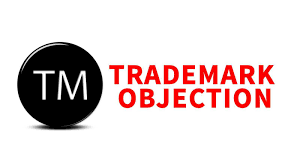
Trademark Objection: A Hurdle in Brand Protection
Understanding Trademark Objections
A trademark objection is a formal challenge raised by a third party against a pending trademark application. This objection is typically filed with the relevant intellectual property office, such as the United States Patent and Trademark Office (USPTO) or the European Union Intellectual Property Office (EUIPO). 1
Common Grounds for Trademark Objections
Trademark objections are often raised on the following grounds:
-
Likelihood of Confusion:
- The proposed trademark is too similar to an existing registered trademark, leading to potential confusion among consumers.
- This can harm the reputation of the existing brand and dilute its market value.
-
Prior Use:
- The proposed trademark is identical or similar to a trademark that has been used by another party prior to the filing date of the application.
- Prior use can establish rights in a trademark, even if it has not been formally registered.
-
Lack of Distinctiveness:
- The proposed trademark is too generic or descriptive, lacking the necessary distinctiveness to function as a trademark.
- Generic terms are commonly used to describe goods or services and cannot be exclusively owned by a single entity.
-
Geographical Indications:
- The proposed trademark may conflict with a geographical indication, which is a sign used to identify goods originating from a specific geographical location.
-
Moral or Public Order Grounds:
- The proposed trademark may be offensive, misleading, or contrary to public policy or morality.
Responding to a Trademark Objection
When a trademark objection is raised, the applicant has the opportunity to respond to the objection by:
- Providing Evidence:
- Submitting evidence to refute the grounds for the objection, such as proof of prior use, surveys, or expert opinions.
- Amending the Application:
- Modifying the trademark, such as by adding a disclaimer or changing the wording, to address the objection.
- Requesting a Hearing:
- Requesting a formal hearing before the relevant authority to present arguments and evidence.
Strategies for Avoiding Trademark Objections
To minimize the risk of trademark objections, consider the following strategies:
- Thorough Trademark Search:
- Conduct a comprehensive trademark search to identify existing trademarks that may conflict with your proposed mark.
- Consult with a Trademark Attorney:
- Seek legal advice from a qualified trademark attorney to assess the strength of your trademark and identify potential issues.
- Choose a Distinctive Trademark:
- Select a trademark that is unique, memorable, and unlikely to cause confusion with other brands.
- Consider Trademark Clearance Searches:
- Utilize trademark clearance services to evaluate the availability of your proposed trademark.
- Monitor Your Trademark:
- Regularly monitor for potential trademark infringement and take action to protect your rights.
Conclusion
Trademark objections can be a significant hurdle in the trademark registration process. By understanding the common grounds for objections and implementing effective strategies, businesses can increase their chances of successfully registering and protecting their trademarks.





Reviews
There are no reviews yet.